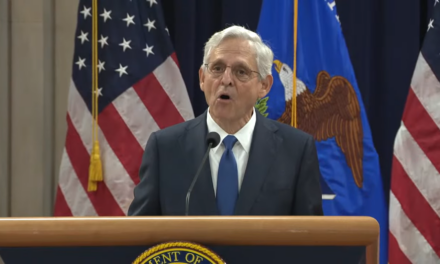We support our Publishers and Content Creators. You can view this story on their website by CLICKING HERE.
The hard lessons Texas learned at its border have led to the creation of the largest state effort in national security in our nation’s history. Now is not the time to forgo that effort.
Since the launch of Operation Lone Star, Texas has made significant and historic strides in asserting state sovereignty and fighting for the nation’s security. The effort has led to more than 49,000 criminal arrests, with more than 42,200 felony charges. More than 900 children have been rescued, and Texas law enforcement has seized over 573 million lethal doses of fentanyl — enough to kill every man, woman, and child in the United States and Mexico combined.
There are two key roles which Texas must continue to play: making Texas the most unfriendly state for illegal immigration and leading the fight against Mexican cartels in American communities. This requires a whole-of-government strategy that must be approached with the same level of commitment and tenacity that we had when fighting Al Qaeda and the Taliban.
We will work with our federal partners, we will deploy our resources as necessary and continue to build upon the momentum we have gained since 2021 under Gov. Greg Abbott’s leadership.
“Gov. Abbott has done more to secure this border than anybody in this administration,” said President-elect Donald Trump’s incoming border czar Tom Homan. “Governor Abbott, God bless him, he’s done more than anybody in the Biden administration to secure the border and protect America.”
We Texans have been here before — defending our lives and our homes, seeking help but expecting none, and knowing that our security depends on us.
The Texans who authored a security resolution in Austin in 1860 could have been describing today’s border if they’d simply substituted the words “criminal cartel” for “Indian tribes”:
“Whereas a state of hostilities exists between the people of the State of Texas and various Indian tribes who inhabits the unsettled portions of the State and adjacent territory—bands of said Indians having at various times within the last three years invaded our settlements, murdered our people, and carried off or destroyed their property, so that the frontier settlements are receding before the invaders, and our own frontier counties in danger of depopulation…”
What’s more, the resolution also cites a dereliction of duty at the federal level.
“Whereas the Federal Government, whose duty it is primarily to protect the State from such hostilities, has not efficiently afforded such protection; and
“Whereas we are continually in such imminent danger of being invaded by said hostile Indian tribes, as will not admit of delay…”
Though this is from Jan. 2, 1860, it could have been written today. Throughout Texas’ history, there are examples of the state repelling activity along the frontier, forced to defend itself against various threats and invasions.
For the past four years, Americans have been left to their own defense, abandoned by a federal government that has refused to do its constitutional duty to protect its citizens. But the tide is changing. America has overwhelmingly voted for new leadership, and South Texas added some volume to that roar.
President-elect Donald Trump has pledged to enforce security at our borders, prioritize the safety of Americans from coast to coast, and no longer allow our border to be the doormat for global weaponized mass migration — as soon as he’s sworn in.
The question on everyone’s mind is: What role will Texas have now?
By seeing to our own defense, Texas has faithfully executed the law and played a vital role in national security. That role is one in which Texas must permanently maintain and reinforce.
The Texas legacy is not one of surrender, but rather a legacy of spirited resilience. When Texas leads, America wins. That could not ring more true when speaking of border security.
Amid the greatest national security crisis of our time, Texas has been at the forefront of studying and interdicting the threat posed at our border. Now, we can lead the way in helping a new, strong federal government strengthen our security apparatus and end cartel influence in America. I can speak for Texans when I say that we are excited and eager to work with our federal partners in making America safe again.
Greg Sindelar is the chief executive officer of the Texas Public Policy Foundation.

 Conservative
Conservative  Search
Search Trending
Trending Current News
Current News 





